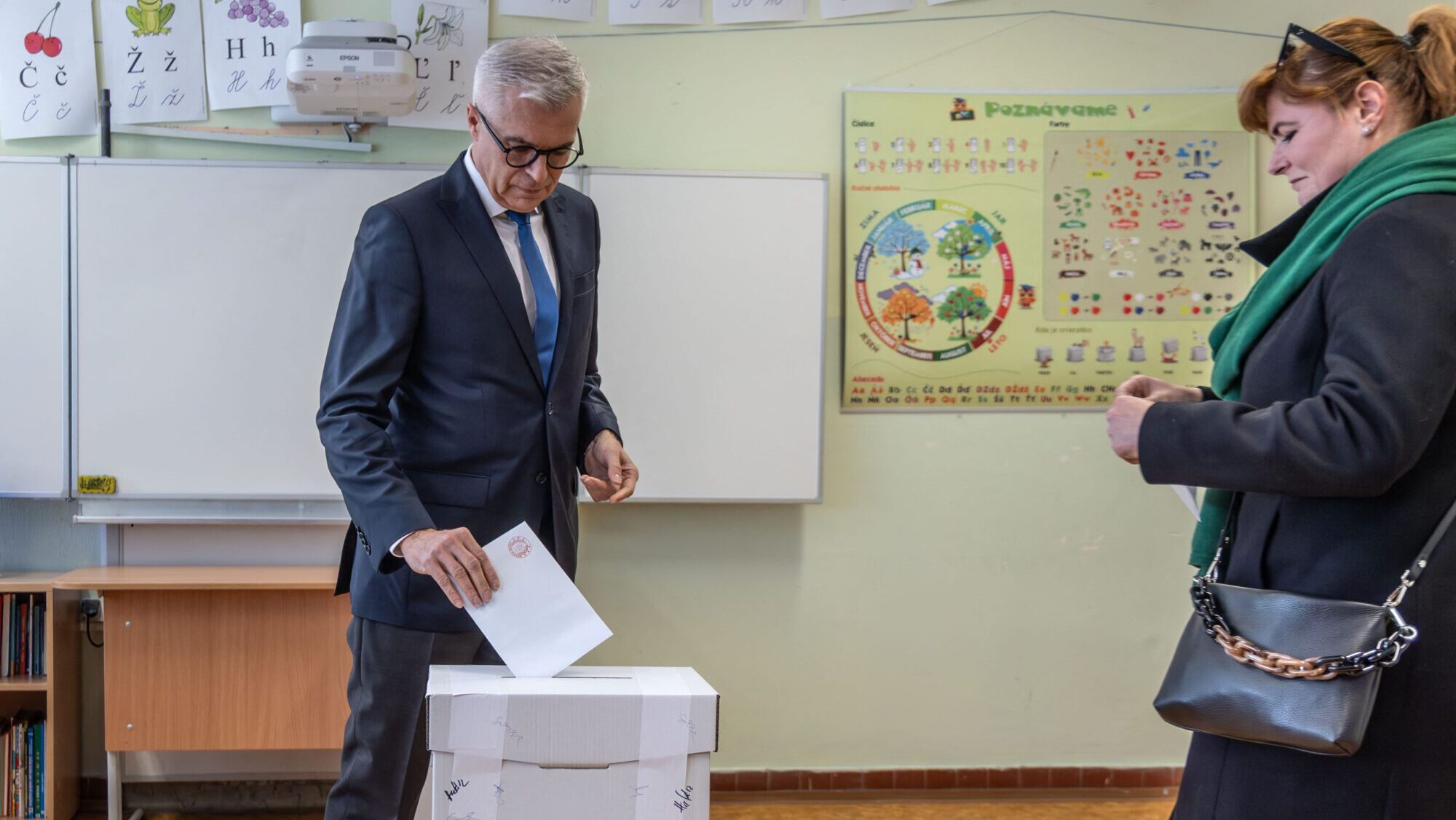
Photo: TOMAS BENEDIKOVIC / AFP
Slovakia’s presidential election is heading for a second round after a tight result in the first vote on Sunday. The liberal former foreign minister Ivan Korčok received 42.5% of the votes, while his main rival, sovereigntist former Prime Minister Peter Pellegrini, received 37%. Because no candidate reached more than 50% of the vote, a run-off election between the top two candidates is scheduled for April 6th.
Slovakia, presidential election (first round) results:
— Europe Elects (@EuropeElects) March 24, 2024
All districts counted
Korčok (*): 43%
Pellegrini (Hlas-S&D): 37%
Harabin (*): 12% (-3)
Forró (MA-EPP): 3% (+3)
Matovič (Slovensko-EPP): 2%
Kubiš (*): 2%
Dubovský (ZĽ~EPP): 1%
Kotleba (ĽSNS-NI): 1% (-10)
Náhlik (*): 0%… pic.twitter.com/A4arVIMbOK
Although the presidential office is largely ceremonial, the election is seen as a battle between anti-globalist and EU-conformist forces. Korčok, a liberal, represents the latter; Pellegrini, a coalition ally of Prime Minister Robert Fico, the former.
“I want to be a president of peace, who proudly and in a sovereign manner protects the interests of the Slovak nation-state,” Pellegrini said, warning that Korčok would use the presidential office to serve foreign interests.
As we previously reported, ever since Fico came back into power in October, Slovakia has been threatened, both with so-called ‘rule-of-law’ proceedings and with its EU funds being frozen, measures that are used to punish member states not in line with the liberal ideology of EU institutions. Fico has angered the Western liberal elites by criticising pro-migration policies, EU-federalisation attempts, transgenderism, woke culture, and sanctions against Russia while calling for peace negotiations to end the war in Ukraine.
Although Pellegrini finished second in the first round of voting, he is favourite to win the second round thanks to the voters of Štefan Harabin, who came third with 12%. Ideologically, Harabin is closer to Fico and Pellegrini, serving as minister of justice (2006-09) in Fico’s first government.
“My voters know what they should do. They’re patriotic and their priority is the preservation of the state, national sovereignty and peace,” Harabin said. Like Fico, he has called for peace negotiations between Russia and Ukraine. He has previously also called for the protection of traditional Slovak culture based on Christianity and rejected the promotion of gender ideology in schools and the wave of immigration to Europe.
